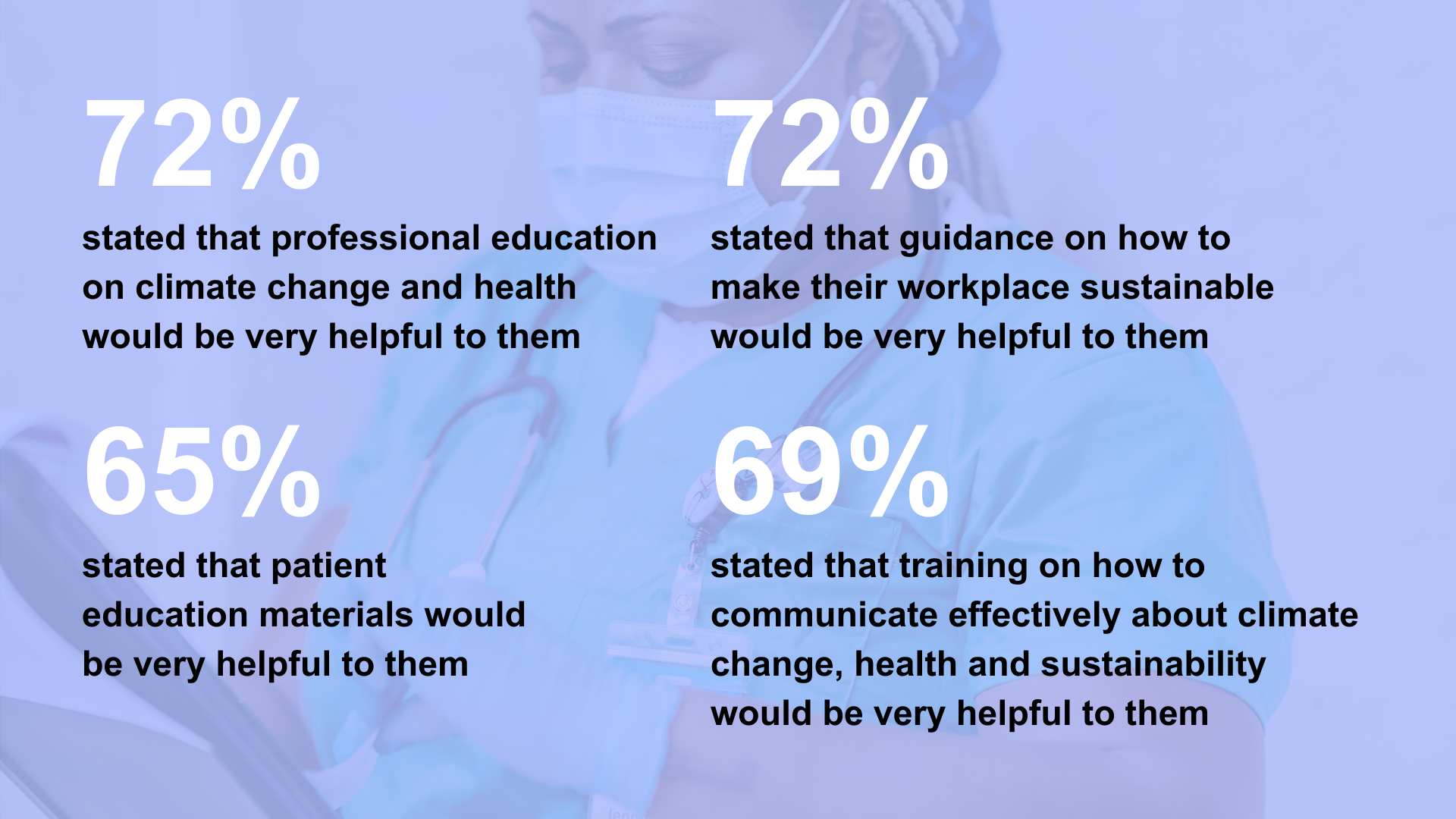Our News
Carbon Literacy for Healthcare

Image Credit: The Carbon Literacy Trust 2021
In May 2021, Lancet Planet Health published a study detailing the views of healthcare professionals on climate change and health. The multinational, survey-based study was built of 3977 international participants, of which 95% were physicians. The study included participants from over 12 countries and explored the views and links between climate change and health.
What did the findings show?
Barriers
The results from the study highlight barriers which healthcare professionals face when communicating climate change to their colleagues, patients and peers. One of the main barriers recognised is the time constraints experienced by so many practitioners. With an already congested timetable delivering healthcare services and undertaking other, compulsory, training, many healthcare professionals feel there simply isn’t time to embed sustainability training into their schedules. Practitioners also spoke of a lack of knowledge around the subject and a doubtfulness in their ability to make a difference; this was coupled with little support from colleagues and a feeling of controversy when discussing climate and health.
Participants felt a responsibility to educate policymakers and the public about the problem. However, they stated they felt they had insufficient knowledge about the links between climate change and health and this presented a barrier to them when wanting to engage on the issue.
14% of participants stated their engagement on the topic would be too risky for them on a personal and professional level. This identifies a need for a cultural shift within our healthcare systems which considers the health of our environment alongside the health of our population.
Opportunities
Three main action points of the study suggest that:
- Health professionals can lobby their nation’s leaders directly, making the health case for climate action.
- Health professionals can educate the public and other relevant stakeholders (e.g. business leaders and civil society leaders) in hopes of building public will for climate policies.
- Health professionals can lead by example, decarbonising their own practices (at work and at home) and advocate for decarbonising the hospitals and healthcare systems with which they are affiliated.
How can we utilise Carbon Literacy to address these findings?
- The research recognises a need for continued professional education on climate to address: the gap in knowledge around climate change; how to communicate this to patients and other stakeholder groups; how to take climate action within our healthcare systems.
- Climate and health campaign organisers can address the constraint of time within the sector by creating opportunities for health professionals to efficiently engage in self-directed education and advocacy that slots around their priority actions. Providing flexible training schedules and providing learners with space to complete tasks in their own time can support the growth of climate knowledge and action within the sector.
- Efforts to offer such climate education – in medical, nursing, and other health professional curricula and through continuing education – should be accelerated, and research should be done to investigate efficient and effective ways of providing it, especially in light of the time constraints being identified as the greatest barrier to engagement.
- Efforts to engage the health sector in campaigns to limit global warming and stabilise the climate should take seriously the need to help health professionals see that they have a unique and necessary role to play in the global effort.
Our plans for the sector
A Carbon Literacy Toolkit for healthcare providers is currently in development. The healthcare toolkit takes a more flexible approach than the toolkits available in other sectors, as it’s made up of 75% generic material which is suitable for any NHS professional, and 25% tailored content for learners. This 25% draws on localised trust-wide examples, risks posed to healthcare workers, trust-wide emissions, what needs to be done within individual departments and examples of climate action happening in departments in other trusts.
This approach plans to encompass the varied nature of healthcare professionals and the barriers mentioned in the research paper above. This approach will also provide training that is relevant, peer focused and localised to anyone working within healthcare.
If you would like to know more about our work and plans within healthcare, get in touch.